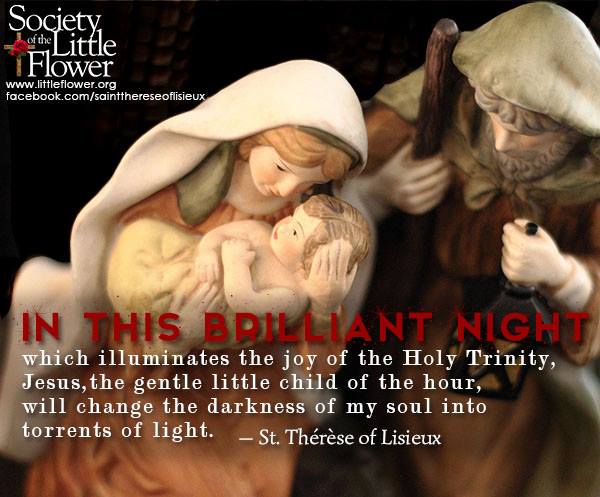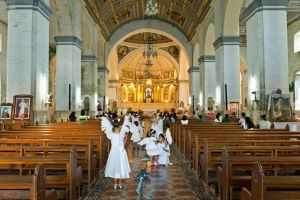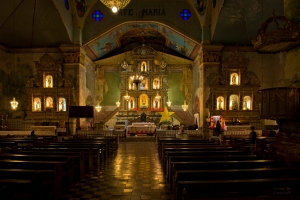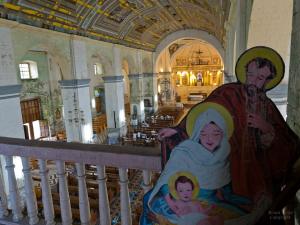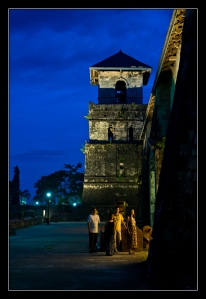On the local legal level, the liberal agenda is being fought in the judiciary and in the legislature.
Legislation
The 1987 Constitution is the foundation of all laws in the country. If a law violates the Constitution, the Supreme Court will strike it down as unconstitutional. Fortunately, Article II, section 12 recognizes the sanctity of family life, affirming it will protect and strengthen this basic and autonomous social institution. The same provision affirms the right to life of the mother and the unborn from the moment of conception. The government also supports the parents’ natural and primary right to rear their children and develop their moral character.
If the liberal advocates want the laws to conform to their advocacies, they need to push for charter change first. Charter change is often met with hostility from the people. This obstacle helps our cause.
Other relevant laws are the Family Code and Magna Carta for Women.
Beginning with the Family Code, Article 1 affirms that marriage is between a man and a woman. Article 45 and 46, fraud is a ground for annulment when a party concealed his or her homosexuality or lesbianism from the spouse. However, this action must be filed within 5 years from the discovery of the fraud.
As for the Magna Carta of Women, section 3 gives the human rights principles of women. It states that all individuals are equal as human beings with inherent dignity. Therefore, no one should be discriminated based on gender, sexual orientation or other status established by human rights standards and other grounds.
Hence, all people have the right to participate and access information regarding their rights. The State has the obligation to comply with the legal norms in international human rights instrument in accordance with the Philippine Constitution. If the State does not comply, these individuals have the right to institute judicial or adjudicatory proceedings.
It is noteworthy that this principle states that the government must comply with international human rights norms in accordance with the Constitution. The Constitution does affirm that international treaties are part of the law of the land. Hence, for a valid law to be passed, it must conform to both the international conventions and the Constitution. The problem arises when these conventions are interpreted to support rights contrary to the Constitution. Under international law, states cannot invoke their local laws as basis for not complying with local laws. Yet, the Supreme Court will invalidate all unconstitutional laws.
Jurisprudence
There are five Supreme Court cases which are relevant to the LGBT advocacy.
The first is Republic vs Cagandahan. In this case Jennifer Cagandahan was born intersex. She was raised as a girl. However, as she matured, she developed more male characteristics then female characteristics. Hence, he filed a petition to change the gender of this birth certificate and change his name from Jennifer to Jeffrey. The Court granted his petition. Here, the Court acted favorably because this was a biological condition. Cagandan was born with both reproductive organs. His records were merely corrected to conform with his physical development.
In the case of Silverio vs Republic, Rommel Jacinto Dantes Silverio filed a petition to change his first name and sex in his birth certificate. He wanted to change his first name from Rommel to Mely and his sex from male to female. He alleged that he is a male transsexual. He is “anatomically male but feels, thinks and acts as a female” and that he had always identified himself with girls since childhood. He consulted several doctors in the United States, going through psychological examination, hormone treatment and breast augmentation. On January 27, 2001, he had a sexual reassignment surgery in Bangkok, Thailand.
In this case, the Court denied Rommel’s petition to change the name and sex in his birth certificate. There is no law which allows a person to change the sex on his birth certificate. Article 412 of the Civil Code states that corrections may only be done by juridical order. Article 407 states that judicial decrees on civil status must be recorded in the civil registry. The enumeration in Article 408 does not include change of gender.
Additionally, the Court defined civil status as:
“the status of a person in law includes all his personal qualities and relations, more or less permanent in nature, not ordinarily terminable at his own will, such as his being legitimate or illegitimate, or his being married or not. The comprehensive term status… include such matters as the beginning and end of legal personality, capacity to have rights in general, family relations, and its various aspects, such as birth, legitimation, adoption, emancipation, marriage, divorce, and sometimes even succession.
Clearly, sex affects marriage and family relations. However, Article 413 of the Civil Code states that all other matters related to registering civil status will be governed special laws. Since there is no special law which permits transgenders to change the civil status on their birth certificates, the Court does not have the authority to judicially amend Rommel’s sex and name. Clearly, the LGBT will eventually try to pass a special law authorizing the Courts to change the sex and name of sexually re-assigned transgenders in their birth certificate. But would such law be constitutional?
Perhaps it could be argued this this violates morality under section 13 or family under section 12 of article II in the Constitution. However, religious morality is not equal to public morality. The Court has bases its decisions on morality in the public sphere. If society deems LGBT in line with public morals, then laws in their favor may been deemed constitutional.
This was clearly seen in the case of Ang Ladlad vs COMELEC. Ang Ladlad applied as partylist group with COMELEC in 2006. They represented lesbians, gays, bisexuals and transgendered people. The COMELEC denied the application on the grounds of violating public morality. They based this denial on passages from the Bible and Koran. Ang Ladlad now questions the validity of this denial.
The Court ruled that COMELEC was wrong in denying Ang Ladlad’s application based on religious grounds. The partylist has complied with all the legal requirements for accreditation. COMELEC’s moral objection is baseless and violates the policy of religious neutrality.
If religion is used as the basis for government decisions, then non-believers would be forced to conform to this standard. This violates freedom of religion because freedom to believe includes the freedom not to believe. One could call this, the freedom to be secular. Government actions prohibiting immorality must be based on a secular purpose. The State prohibits certain practices because they are harmful to the existence and progress of human society. Religion may be influential in deliberating on the morality of an action but they cannot form the sole basis of government decisions. [1]
Therefore, the Court prescribes benevolent neutrality. This means that the State must pursue its secular aims and interests but it should simultaneously uphold religious freedom as much as possible. The constitutional limits should be flexible. Although the morality contemplated is secular, benevolent neutrality means that the law can consider the morality of religions as long as these do not violate compelling state interests.
There is insufficient evidence that homosexual conduct is publicly considered immoral. Homosexual conduct has not been criminalized. The COMELEC has not sufficiently proven how society would be harmed. Neither have they proved what special protection the youth would require. In conclusion, a “moral disapproval, without more, is not a sufficient government interest to justify the exclusion of homosexuals from the participation in the partylist system.”
Another concession the Court has given to the LGBT is the case of Gualberto vs Gualberto. In this case, a lesbian mother, living with her partner, field for the custody of her child. Article 213 of the Family Code contains the tender-age presumption which grants preferential custody to mothers, whose children are under 7 years old. This presumption is only overcome by compelling reasons.
The husband cited immorality due to alleged lesbian relations as the compelling reason to deprive the mother of custody. Admittedly, under certain circumstances, the mother’s immoral conduct is a compelling reason to deprive her of custody. However, the Court ruled that sexual preference or moral laxity alone does not prove parental neglect or incompetence. Not even the fact that a mother is a prostitute or has been unfaithful to her husband would render her unfit to have custody of her minor child. To deprive the wife of custody, the husband must clearly establish that her moral lapses have had an adverse effect on the welfare of the child or have distracted the offending spouse from exercising proper parental care.
Advocacy
Advocating for laws, must be strategized. According to Harold Koh, the legal adviser of Hilary Clinton, you have to strategize how you package human rights agenda with the government. You need to push for certain rights while holding others back. In pushing for these advocacies, they need to be packaged so that the government also benefits. Make the government think that it is a win-win situation.
This essentially adheres to the human rights principle of progressive realization. It is not advisable to push for your advocacies all at once. There needs to be a gradual legislation and implementation of human rights norms. Rights are progressive realized due to a number of factors, religion, politics, culture, insufficient government resources etc.
Many of these factors are clearly seen in the Philippines. The society is still opposed to abortion, same-sex marriage etc. However, media is slowly changing this. Likewise, we have seen this in the passage of LGBT ordinances in various cities and the anti-discrimination bill pending in Congress.
Yet, these are not enough. For these bills to pass the government needs to benefit. With the RH law, they pushed into to passing it by the United States’ aid for Haiyan victims. Although pro-lifers do not have the backing of big governments, the laws they legislate should give the government, government officials and politicians something they want. Perhaps this can give them an edge, despite the lack of foreign backing.
